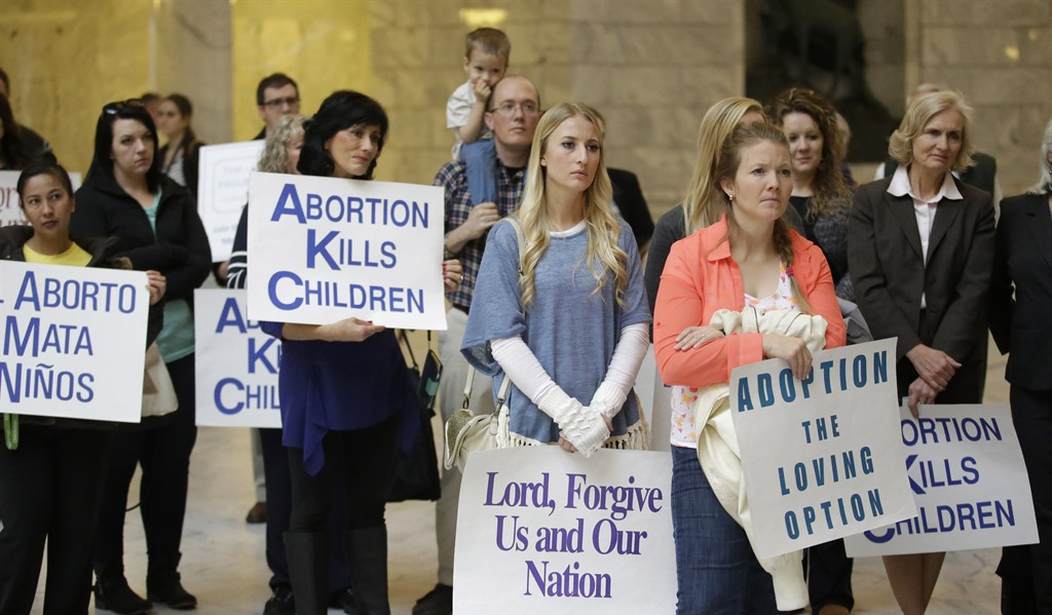"We are basket cases of ingratitude, so many of us," National Review magazine founder William F. Buckley remarked in a 1988 speech.
It's easy for the holidays at year's end to become routine -- even stressful -- but we really must insist upon using them as a time for reflection. Every time I've walked past a torn-down Israeli hostage sign in New York City this fall, I've thought about how we don't learn the lessons of history and don't remember what is most important. We're having the same miserable old debates, but what we really need to do is get ourselves disconnected from our phones and out of our ideological silos.
Last year, in the journal First Things, Grove City College professor Carl Trueman wrote about "Our Age of Ingratitude." He noted the language around privilege -- that in our current culture, if you have blessings in your life, you are somehow expected to apologize for them, do penance for them, rather than give thanks for them.
"I, for one, refuse to oblige," he writes. "Yes, I am privileged: I grew up in a home where my mother and father loved each other, stayed together through thick and thin, and provided my sisters and myself with opportunities that had been denied to them because of their own working-class upbringing -- most obviously, the opportunity to study at college."
"Mine was thus a privileged childhood -- but my mother and father did not build their marriage and family at the cost of those of somebody else," he went on. "(T)he appropriate response to such privilege is not to feel guilty. It is to feel gratitude. To do otherwise would be to sin against my parents."
In recent weeks, I've seen too many families in Manhattan being processed at a Midtown hotel, having come over the border from Mexico. Someone likely stole their money and lied to them about what would happen when they found themselves in the United States. What can we do to help families in this sort of situation?
Trueman quotes the late Sir Roger Scruton, who, at the end of his life, wrote: "Coming close to death you begin to know what life means, and what it means is gratitude." Trueman adds: "We live in an age marked by infantile ingratitude. And if Scruton is right, that means we live in an age when we do not really know how to live at all. Ingratitude has dehumanized us."
Recommended
BraveLove, an organization devoted to supporting mothers struggling with unwanted pregnancies, is one of my favorite examples of gratitude in action. One of their most recent videos shows a 17-year-old named Emmah. She admits that her testimony is still "raw," but she is bursting, too, with gratitude that she doesn't have "to take a child's life away when he can be an amazing person, a person I get to know." She had no idea how adoption worked, and as hard as it was to sign the final papers, she was grateful to spend time with her baby, who she considers "a blessing in disguise." She didn't ever expect that she would be pregnant before she was married, but amid all her emotions, she radiates thanks, for both her own supportive family and the couple who adopted her son.
Emmah's is not an easy story. But the more we tell these stories, the more the anger and divisiveness that we see on the streets, in our universities, in our politics, at family gatherings, on social media and in so many other places will be seen as a waste of energy. Buckley'a and Trueman's and Emmah's sentiments are pleas for us to be more human -- in our own lives and to be more human to each another. Being basket cases of ingratitude means wasting time in our short lives. As another year ends, let's put our remaining time to good use.
(Kathryn Jean Lopez is senior fellow at the National Review Institute, editor-at-large of National Review magazine and author of the new book "A Year With the Mystics: Visionary Wisdom for Daily Living." She is also chair of Cardinal Dolan's pro-life commission in New York, and is on the board of the University of Mary. She can be contacted at klopez@nationalreview.com.)

























Join the conversation as a VIP Member